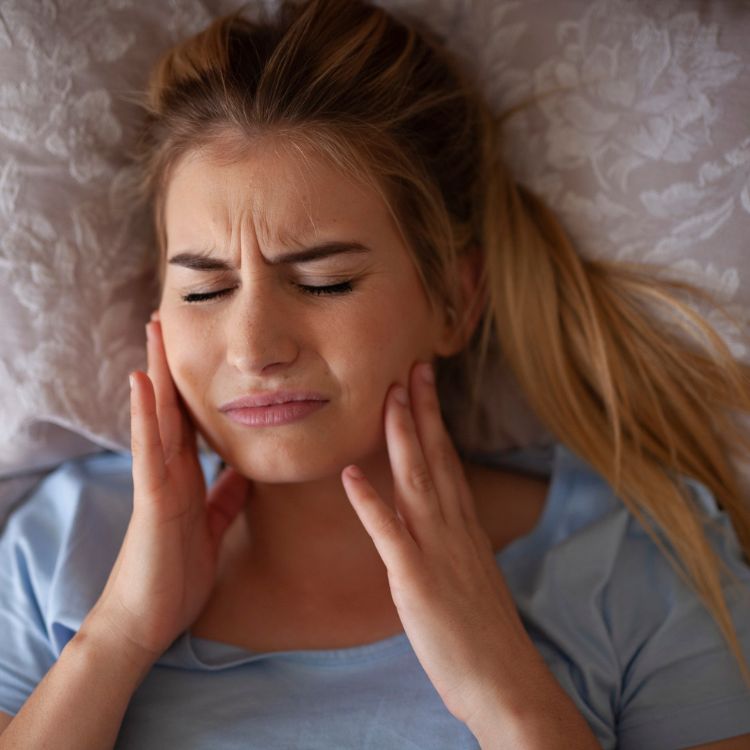What is TMJ Disorder?
You have two temporomandibular joints (TMJ), located on either side of your face where your lower jaw connects with your skull. These joints are crucial for opening and closing your mouth, as well as allowing side-to-side jaw movement. When problems develop in one or both of these joints, it’s referred to as TMJ disorder.
Causes of TMJ
TMJ problems typically fall into one of three categories:
- Muscle Issues: TMJ pain may result from muscle tension, trigger points, or the stress placed on the muscles by habits like teeth grinding (especially while sleeping).
- Structural Problems: Issues like jaw misalignment, a displaced disc between the jaw and skull, or injury to the joint can cause TMJ pain. These structural issues are often aggravated by misaligned teeth, teeth grinding, or an inherent jaw misalignment.
- Degenerative and Inflammatory Disorders: Like any joint, the TMJ is vulnerable to arthritis or degenerative disc disease. Inflammation in the soft tissues around the joint—such as nerves, muscles, ligaments, and tendons—can also cause pain and discomfort.
Symptoms of TMJ Disorder?
TMJ disorder primarily affects your jaw, but the pain can radiate to other areas of the face and head. Common symptoms include:
- Sore jaw muscles
- Jaw clicking or popping
- Muscle spasms
- Ear ringing
- Frequent headaches
- Earaches
- Dizziness
- Jaw locking (in severe cases), which can make it difficult to open or close your mouth.
If you’re experiencing any of these symptoms, especially if they’re interfering with your daily life, it’s time to consult a professional.
TMJ Disorder Treatments
There are a variety of ways to address TMJ pain, and the right treatment for you will depend on the underlying cause of the disorder. Many people find relief with simple, nonsurgical approaches such as:
- Jaw exercises to help stretch and relax the joint.
- Anti-inflammatory medications to reduce pain and swelling.
- Dental appliances to protect against teeth grinding and jaw clenching.
If these treatments aren’t enough, there are several more advanced options we offer at Louisiana Pain Specialists to effectively alleviate TMJ pain:
- Botox® Injections – Botox works by relaxing tight jaw muscles and reducing pain from muscle tension.
- Steroid Injections – Steroids help reduce inflammation and pain from arthritis, inflamed nerves, and other soft tissues in the jaw.
- Trigger Point Injections – These injections target tight, painful muscle areas, helping them relax quickly.
- Regenerative Injections – Using platelet-rich plasma (PRP) or prolotherapy, these injections promote healing and regeneration of damaged TMJ tissues.
- Nerve Blocks – Techniques like the sphenopalatine ganglion or mandibular nerve block stop pain signals from reaching the brain, providing lasting relief.
If you’re struggling with TMJ-related pain, we’re here to help you find a solution that works for you.


